Neonatology
The region's highest level NICU.
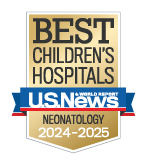
Neonatology
The region's highest level NICU.

When your newborn needs advanced care, trust the neonatology team at Children’s Mercy to provide the highest level of care in the region. With the region’s only top-level (Level IV) Neonatal Intensive Care Unit (NICU) and partnerships with area hospitals, we bring the best care to babies throughout the Midwest.
Every day, we care for more than 80 fragile newborns in the NICU who have chronic lung disease, complex birth differences or complications of prematurity. We provide advanced treatments like ECMO and therapeutic whole-body cooling that only the leading programs can offer.
The region’s highest level NICU, with every specialist in one place
No matter what challenges your baby might face, we have a provider who can help. Children’s Mercy is the only health system in the region that is dedicated solely to pediatric care. Our doctors and nurses know kids, inside and out. With more than 750 pediatric specialists, we provide the very best care, from birth to age 21. All the specialists on your baby’s care team will work together to develop a care plan with you.
The American Academy of Pediatrics has designated Children’s Mercy as a Level IV NICU. This is the highest designation available and means babies have access to a full range of more than 400 newborn medicine specialists, highly-trained pediatric nurses and anesthesiologists, and specialized equipment for our tiniest patients. We are the only Level IV NICU between St. Louis and Denver and provide transportation and care for babies from across the Midwest.
Expecting moms whose babies need special care before, during or immediately after birth can meet with an integrated team of specialists in our Fetal Health Center. We help families with diagnosis, testing and treatment of complex conditions to help babies get the best possible start in life. Our specialists are able to perform surgery when needed on the tiniest babies—in some cases, even before they are born. We also have an expert Maternal-Fetal Transport team ready at any time to quickly and safely bring expecting moms or newborns to our Adele Hall campus in downtown Kansas City for care.
The experts on the Children’s Mercy neonatology team are available 24/7 at several hospitals in our region. Whether your newborn needs a well baby checkup or intensive care, our neonatologists work alongside providers at our partner hospitals, seeing babies every day.
Conditions
-
Acute newborn respiratory disorders
-
Aspiration pneumonia
-
Birth transitional disorders
-
Birth trauma
-
Chronic lung disease
-
Coagulation disorders
-
Complex birth defects including:
-
Craniofacial malformations
-
CNS malformations and spina bifida
-
Congenital heart defects
-
Renal dysplasia
-
-
Conditions requiring extracorporeal membrane oxygenation (ECMO)
-
Congenital infections
-
Encephalopathy
-
Genetic disorders
-
Low birth-weight/preterm newborns
-
Meconium aspiration
-
Metabolic disorders
-
Pulmonary disorders
-
Pulmonary hypertension
-
Respiratory distress syndrome
-
Seizures
-
Sepsis/meningitis
-
Surgical emergencies
Stories
NICU to Now: Jeremiah’s story
This music-loving 6-year-old was born at 22 weeks and three days. The Level IV NICU at Children’s Mercy Kansas City gave him the respiratory support he needed to grow and thrive.
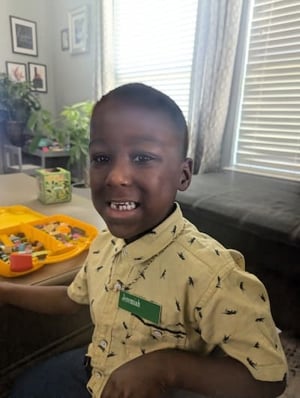
Fetal Heart Block: Reese's Story
Taylor and Caleb Jeter's unborn daughter, Reese, was diagnosed with fetal heart block while they were stationed in Germany. They were referred to Children's Mercy Kansas City for specialized care, where a multidisciplinary team managed Reese's condition and performed a successful surgery after her birth. Reese now has a pacemaker and continues to receive ongoing care and monitoring.
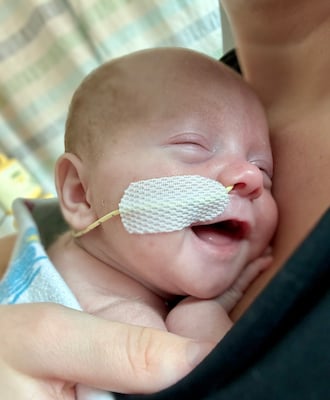
Fetal Health Center and NICU: Birdie and Erika’s Story
First-time mom Erika has been through a lot with her daughter Birdie. From delivering in our Fetal Health Center to several months in the NICU and multiple surgeries, Erika knows the hospital so well that she joined our staff! Read Erika and Birdie's story.
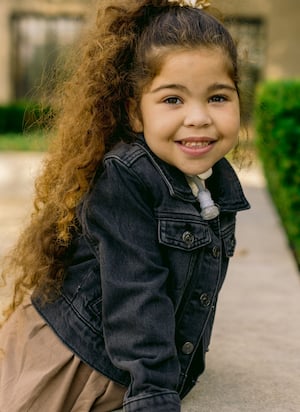
Kangaroo Care Program improving lives of premature babies (and their parents)
Brianna Schmitz experienced a mix of fear and relief when she first held her premature son, Bodhi, in the Neonatal Intensive Care Unit (NICU). Born at just 28 weeks and weighing less than two pounds, Bodhi benefited from the hospital’s Kangaroo Care program, which emphasizes skin-to-skin contact to promote bonding and numerous health benefits. This practice, supported by dedicated NICU staff, has shown remarkable results in improving the well-being of both premature infants and their parents.
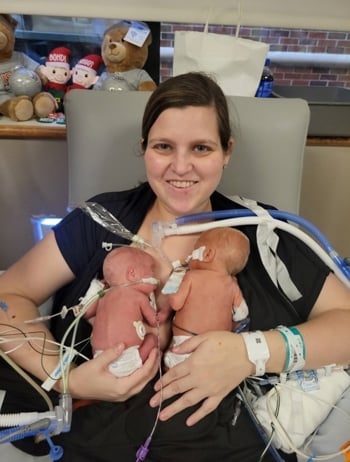
NICU to Now: Kaydee's story
Kaydee started her journey as a premature newborn, weighing only 1 pound and 6 ounces. She faced significant challenges, including severe bronchopulmonary dysplasia, and was transferred to our Level IV NICU at 4 months old. Today, Kaydee is an energetic, horse-riding 10-year-old breathing on her own and thriving on her family's ranch.

Epidermolysis bullosa simplex: Jaciel’s story
When Jaciel Ceballas Lemus was born, the skin was missing from the palms of his hands and soles of his feet, and soon blisters, some the size of quarters, covered his body. At Children’s Mercy, he was diagnosed with a rare genetic skin disorder called epidermolysis bullosa simplex (EBS). With dedicated support from his family and medical team, Jaciel’s skin now has healed, and he’s home for the first time since his birth.
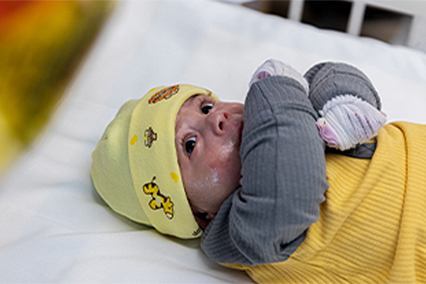
Osteopathia striata with cranial sclerosis: Emersyn’s story
Pink tutus and Peppa Pig are just two of the things 4-year-old Emersyn Gross loves. Find out how Children’s Mercy helped diagnose and treat her rare genetic condition so she can enjoy being a kid.
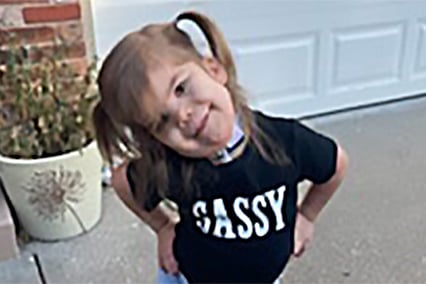
Tracheostomy Program: Kieesha's story
If you want to know what life with a tracheostomy is like, just ask Kieesha. With the help of the Children's Mercy Tracheostomy Team, she's successfully managed life with a trach for almost all of her 9 years. In spite of her complex medical needs, Kieesha doesn't let her trach slow her down.
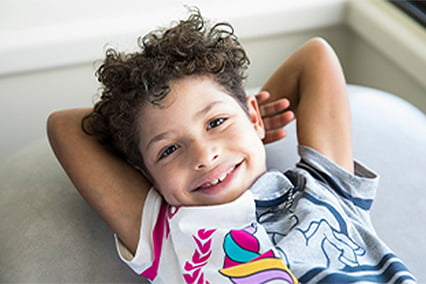
Protein C deficiency: Will’s story
It wasn’t likely that Amber and Blake McKinnon would have another child with a rare blood clotting disorder, but when it happened, the Children’s Mercy Elizabeth J. Ferrell Fetal Health Center and Level IV Neonatal Intensive Care Unit were there for them. Today, their second son, Will, is a healthy toddler thanks to the lifesaving care he received as soon as he was born.
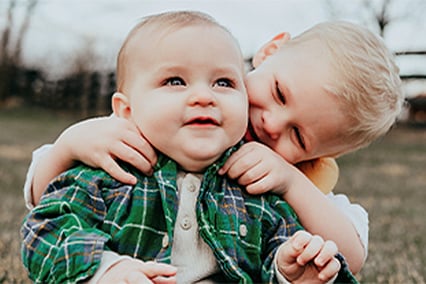
Research and Innovation
At Children’s Mercy, we’ve been turning research into results for more than 40 years for babies with chronic lung disease through advanced treatments like nitric oxide therapy and ECMO. Our researchers also study how medications impact the smallest babies to ensure that they get exactly the right amount of medicine at the right time to help them get better.
The Genomic Medicine Center at Children's Mercy helps to quickly diagnose children with rare or complex medical conditions and connect them with the latest treatment options.
The Donald W. Thibeault Neonatal Lung and Immunology Lab conducts studies into various aspects of neonatal lung disease and bowel disease. The researchers continue the vision of Dr. Thibeault, who was passionate about translating research into better care for babies.
The Infant Lung Center is dedicated to improving treatments for chronic lung disease in infants.
